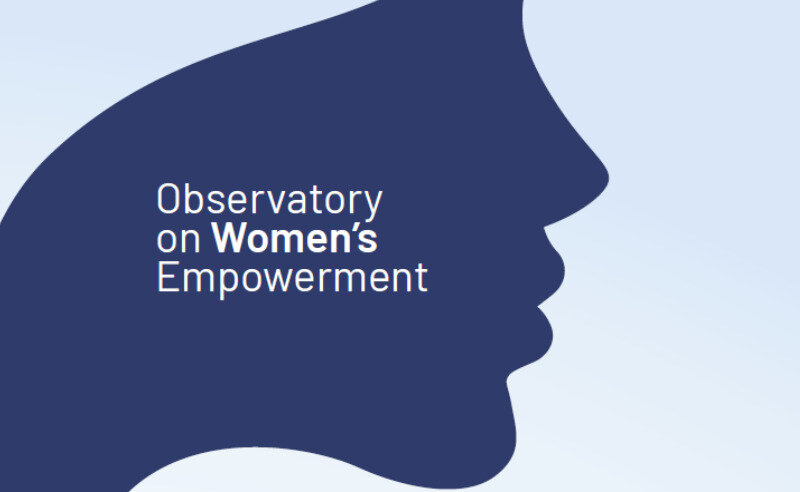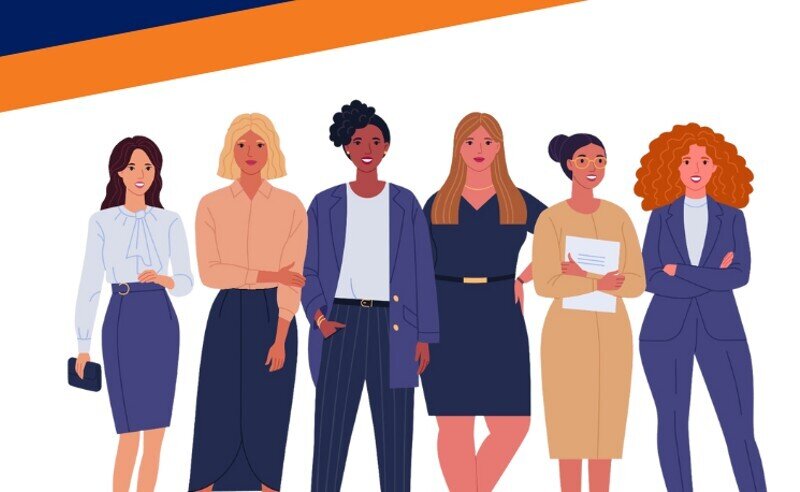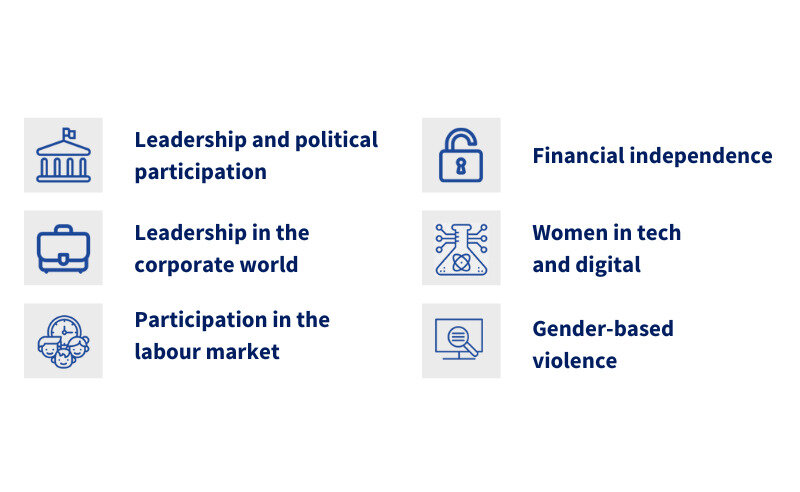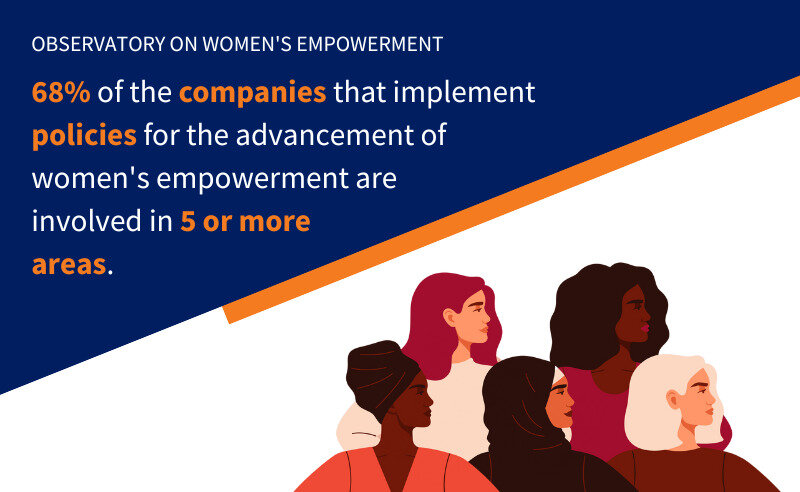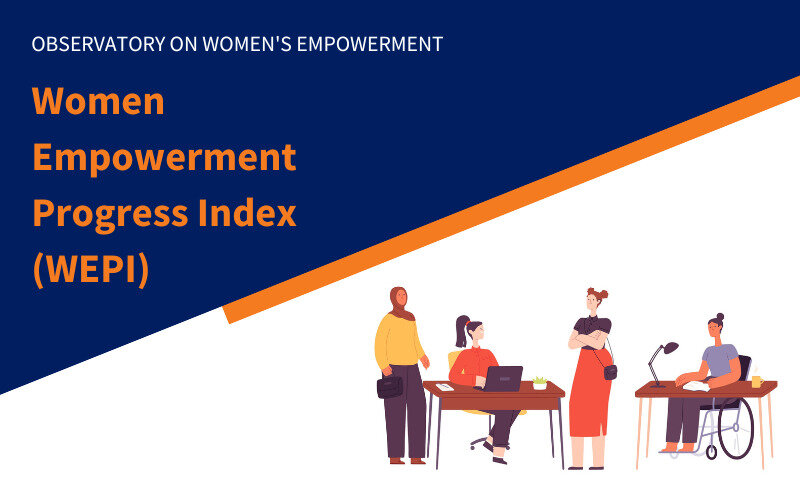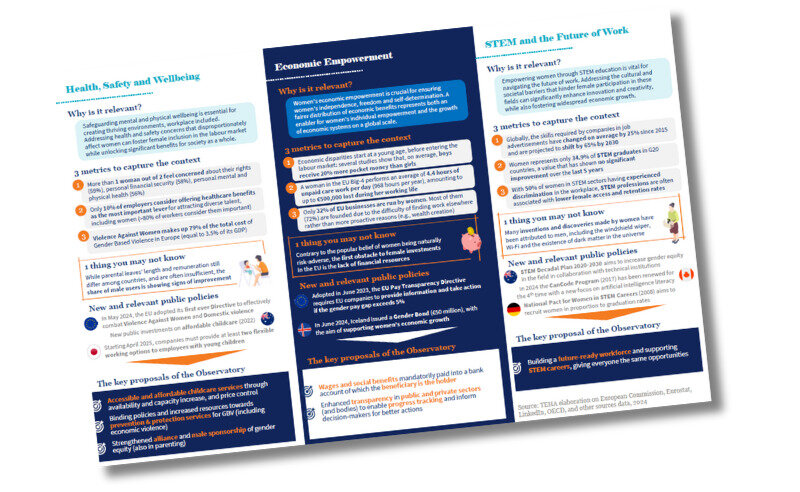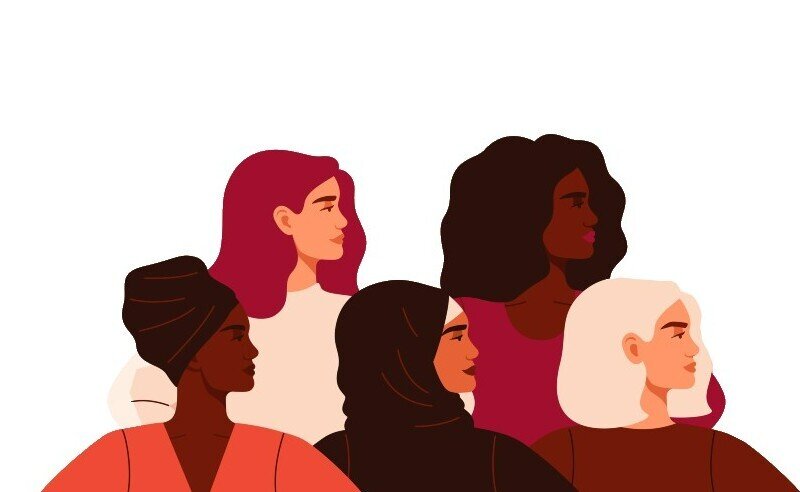Women's Empowerment Observatory
A permanent and independent Observatory on Women's Empowerment, with a focus on G20 countries plus Spain.
The Reports of the Observatory on Women's Empowerment
2021
For the first time in G20's history, in 2021, during the Italian Presidency of the summit, a conference entirely dedicated to female empowerment is held in Rome. In such occasion, Ambrosetti Club launches and coordinates a Business Advisory Board, under the guidance of the Italian Minister of Equal Opportunities and Family, Elena Bonetti.
The analysis and recommendations developed are shared with the Department for Equal Opportunities and Family of the Office of the Prime Minister, which expresses its intention to formulate social welfare policies in line with the suggestions received. The goals The European House - Ambrosetti working group set for itself in producing the study are to:
- analyze the current status of female inclusion in the labor market in Italy;
- identify the causes at the root of low female inclusion in the Italian labor market;
- craft scenarios and economic parameters regarding greater female participation in the Italian labor market;
- develop policy proposals and outline a short-to-medium term strategy for achieving equity and equal opportunities for women in the Italian labor market.
The results are presented at the G20 Conference on Women's Empowerment, on August 26, 2021, with a Manifesto signed by the Advisory Board's members.
Learn more
Proposals for a nation that seeks equity and equal opportunities for women in the labor market
The MANIFESTO on Women's Empowerment
The presented papers
2022
In continuity with our commitment, in 2022 The European House - Ambrosetti launches a permanent and independent Observatory on Women's Empowerment, with a focus on G20 countries plus Spain (included as a permanent guest of the G20) – in partnership with A2A, ABB, British American Tobacco (BAT), Invesco, Gruppo Mondadori, Oracle, and Gruppo Pictet; with the contribution of Special Advisors Arancha González Laya (Rector of Sciences Po's School of International Affairs in Paris) and Minouche Shafik (Rector of the London School of Economics and Political Science).
Best practices
By analisying more than 50 policies on women's empowerment across all G20 countries and Spain, we have identified 6 categories of best practices.
Areas of intervenction
- Work-life balance
- Definition of specific KPIs/targets
- Training & retraining courses
- External partnerships
- Education
- Awareness
- Mentorship & sponsorship
An indicator to measure the progress of women's empowerment
From the Observatory stemmed a new indicator - Women's Empowerment Progress Index (WEPI) - which measures, monitors and tracks the progress of G20 countries plus Spain in multiple domains of female empowerment with the goal of promoting effective policies.
Approved by the European Commission
the Index has been submitted for the audit of the Joint Research Centre (JRC) of the European Commission’s Competence Centre on Composite Indicators and Scoreboards (COIN). The audit provided by the JRC underlines the quality, trustworthiness and conceptual soundness of the framework adopted for the elaboration of the WEPI.
The Observatory at the 48th Cernobbio Forum
The first results of the Observatory are presented by Arancha González Laya to the audience of the 48th Cernobbio Forum, during the session dedicated to the fight against inequalities, on September 2, 2022.
The study highlights how achieving gender equality and advancing Women’s Empowerment is not just a matter of rights, but also a fundamental step in the path towards the achievement of sustainable development – in terms of social equality as well as economic growth and country competitiveness..
2023
For the second edition, the Observatory kept measuring the international progress on women's empowerment, and recording best practices, based on the principles of accountability and measurement of social, economic and cultural impacts.
On the basis of this work, we have developed two composite Indexes:
The Women’s Empowerment Progress Index 2023, updated to 2023, measures, monitors and tracks the progress of G20 countries plus Spain in multiple domains of female empowerment with the goal of promoting effective policies.
France is once again at the top of the ranking, followed by the UK and Australia, with Türkiye, Saudi Arabia and India at the bottom, still showing high levels of dynamism. In this picture, Italy ranks sixth with a score of 83.1 out of 100. One of the country's strengths is the share of seats held by women on the boards of publicly listed companies (equal to 42.6% vs. the G20 plus Spain average of 26.5%), also thanks to the implementation of the Golfo-Mosca Law; while a low female labour force participation rate (56.4% vs. 61.4%) and a limited share of women in managerial positions (28.6% vs. 30.9%) represent the most critical issues.
The EU SheWorks Index, is aimed at emphasizing the centrality of women’s access, inclusion and empowerment in the European labour market to release their full potential, focuses on EU-27 Member States plus the UK.
There is a strong concentration of Nordic countries among the best performers, with Sweden, Ireland and Finland in the top three positions, while Greece, Italy and Romania are at the bottom of the ranking. In this context, with a score of 5.4 out of 100, Italy records an extremely high share of women in involuntary part-time employment (equal to 52.6% vs. the EU average of 23.0%) and a higher share of women outside of the workforce due to caring responsibilities (3.1% vs. 1.2%).
The results of the second edition of the permanent Observatory on Women’s Empowerment were presented by Arancha González Laya during the 49th edition of The European House - Ambrosetti's annual Forum in Cernobbio.
2024
The Observatory further developed the two indexes presented in 2023 and presented the third Report at the 50th TEHA Forum in Cernobbio.
In 2024, the Women's Empowerment Progress Index (WEPI) sees the UK as a top performer for the first time. This result is mainly due to a combination of two factors: firstly, an increase in the proportion of women in managerial positions (40.2% in 2023 compared to 36.5% in 2022), and secondly, a smaller deterioration compared to other countries on some indicators (e.g. female employment in ‘vulnerable’ conditions, time spent in unpaid work).
The 2024 EU SheWorks Index's ranking confirms a strong polarisation between Northern and Southern Europe, with the ranking led by Sweden, nine countries improving slightly in the last two years, and Italy in fourth to last position.
The corporate best practices included in the Report show how many companies are already attentive and prepared on women empowerment issues. The hope is that these experiences can nurture a virtuous circle of inspiration, exchange and sharing, encouraging other companies to realise that it is possible to take concrete action and that, above all, change starts with the choices and actions of each individual. Together, we continue to carry forward the shared responsibility of women's empowerment, ensuring that future generations inherit a fairer, more equitable and inclusive society.


